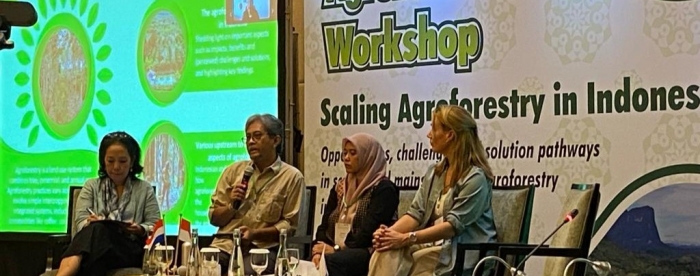News
Our stories ... ...

Indonesia - 27 June, 2024
This article emphasizes the need for collaborative efforts to scale and promote agroforestry practices in Indonesia. It presents a policy brief that highlights promising solution pathways to overcome the challenges and seize the benefits, inviting stakeholders to contribute to and unlock the full potential of agroforestry, ultimately benefiting communities and ecosystems across Indonesia.
Agroforestry has been practised for centuries in Indonesia, and ranges from simple intercropping to complex integrated systems. Agroforestry practices offer a myriad of benefits, such as livelihood resilience, food security, carbon sequestration and biodiversity conservation. Despite the benefits of and existing policy support for agroforestry, widespread adoption in Indonesia remains limited, with some farmers opting for monocultures due to their perceived economic advantages. Collaborative efforts are needed to scale and promote agroforestry.
In 2023 research on upscaling agroforestry in Indonesia was developed and validated during a multistakeholder workshop.
The workshop was co-organized by the Embassy of the Netherlands in Indonesia, TBI and Tropenbos Indonesia. More than 100 participants attended from various backgrounds, such as government agencies, NGOs/CSOs, the private sector, and university and research organizations.
The research explored and identified the challenges that hinder the adoption and scaling of agroforestry in the country. Workshop participants introduced, validated and fine-tuned the results, while exploring opportunities for collaborative exchanges and learning among a wide range of stakeholders.
The study and workshop formulated the following pathways to promote the adoption of agroforestry for impact at scale:
To implement the proposed solutions, the policy brief "Pathways to progress: opportunities for contributing to the adoption of agroforestry in Indonesia to reach impact at scale" recommends prioritizing the following actions:
Read the Policy Brief: here